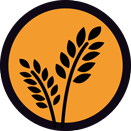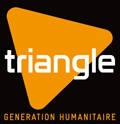AREA OF EXPERTISE

Food security and livelihood

AREA OF EXPERTISE

Food security and livelihood
FUNDING
In Darfur, eight years after the beginning of the conflict, the crisis is still unsolved. The ongoing fights – especially in the Djebel Marra region and along the ever-moving frontline between al-Daein (South Darfur) and Shangil Tobaya or Dar al-Salam (North Darfur)- and the absence of political solution take away any hope of return from nearly two million displaced people. These populations are thus kept in a state of need requiring continued provision of essential services. Eight years of crisis, however, enabled the beneficiaries to develop various coping mechanisms, which, eventhough they are unevenly and diversely distributed, advocate a new approach to aid, involving a greater involvement of various local actors and ensuring better durability of the services provided, especially for long-term displaced persons – the newly displaced or returned people needing to remain eligible for a more purely humanitarian or emergency assistance.
Since the beginning of 2011, the normalization of the relations between Sudan and Chad has enabled the establishment of a joint Sudano-Chadian force along the border, having a positive effect on reducing the presence of rebel groups in this area, thus mitigating the risks taken during field visits. Local TGH teams of agronomists have regained access to rural areas and are able to update the list of beneficiaries through field surveys, to organize direct distributions (« hand-to-hand ») without any intermediary, and to conduct surveys before and after crop harvest.
This program allows TGH to intervene in several areas: protection and agriculture. Support to agricultural production is indeed essential in Darfur, where almost all the families are involved in agriculture which remains their main source of income and assets. In this context, it is vital to support local capacity for resilience, in order to enable aid recipients to make a concrete and material contribution to the project, and to ensure their food security beyong the assistance provided, which is currently decreasing.
TGH teams distribute various agricultural inputs throughout the year, according to the season and to the needs identified during the survey process: cereal seeds (millet and sorghum) and tools (plows) before the rainy season, vegetable seeds (onions, tomatoes, melons, cucumbers, combos, radishes...) before the winter season. These distributions are carried-out with the participation of non-institutional local partners (traditional leaders, local committees, communities), ensuring the link with beneficiary populations and the security on distribution sites. Meanwhile, lobbying activities are organized in partnership with the Ministry of Agriculture and the Department of Humanitarian Affairs in order to encourage local institutional actors to take part in the activities.
TGH teams set up and provide training courses to some of the farmers benefiting from the distributions, in order to specify the use of seeds and tools and the best growing conditions (how to use a motor pump or a foot pump, how to prepare the land, how to prepare compost...). During the cultivation period, and according to the needs identified, training sessions are organized in the villages (how to fight against insects, how to improve the yield in onion production, how to make compost...).
Throughout the year, the various surveys conducted by TGH teams offer a clear picture of the state of agricultural production, food security and availability/accessibility of food products at local farmers markets. These surveys also help checking the relevance of the activities, and allow their adaptation if necessary (updating of the list of the beneficiaries of the distributions, surveys before and after the harvests, monthly monitoring of price trends on local markets, information on rainfall in the various areas of operation…).
TGH also supports the beekeeping sector (Beekeepers Association of Bindizi, Beekeepers of Mukjar), via the distribution of shared equipment (hives, extractors, safety equipment), the establishment and securing of production and processing sites (delimitation and planning of common land use, improvement of the relations between farmers and beekeepers), the construction of a storage and selling area close to or on the farmers market, and the organizing of training courses on beekeeping techniques (use and making of modern and traditional beehives) and on the management of cooperatives (budget management, global management, associative management, marketing).
The evolution of the humanitarian situation is coodinated with the actors involved, and first necessity products are distributed to most vulnerable populations and to newcomers in the areas of operation (Bindizi and Um Dukhun)
TGH is also responsible for the coordination with the identified actors of humanitarian assistance, and for responding to immediate or urgent needs in terms of non-food aid. The NGO therefore regularly issues reports on population displacements in intervention areas for the attention of relevant agencies, and conducts surveys in order to assess the humanitarian situation and the urgent needs of newcomers, in order to provide a rapid response to theur basic needs.
The teams must also be able to cope with emergency situations, whether to help newcomers or vulnerable populations, or to intervene in crisis situations (fires, floods…). An emergency stock is therefore maintained, consisting of non-food items and materials and equipment needed for the construction of water points and latrines.